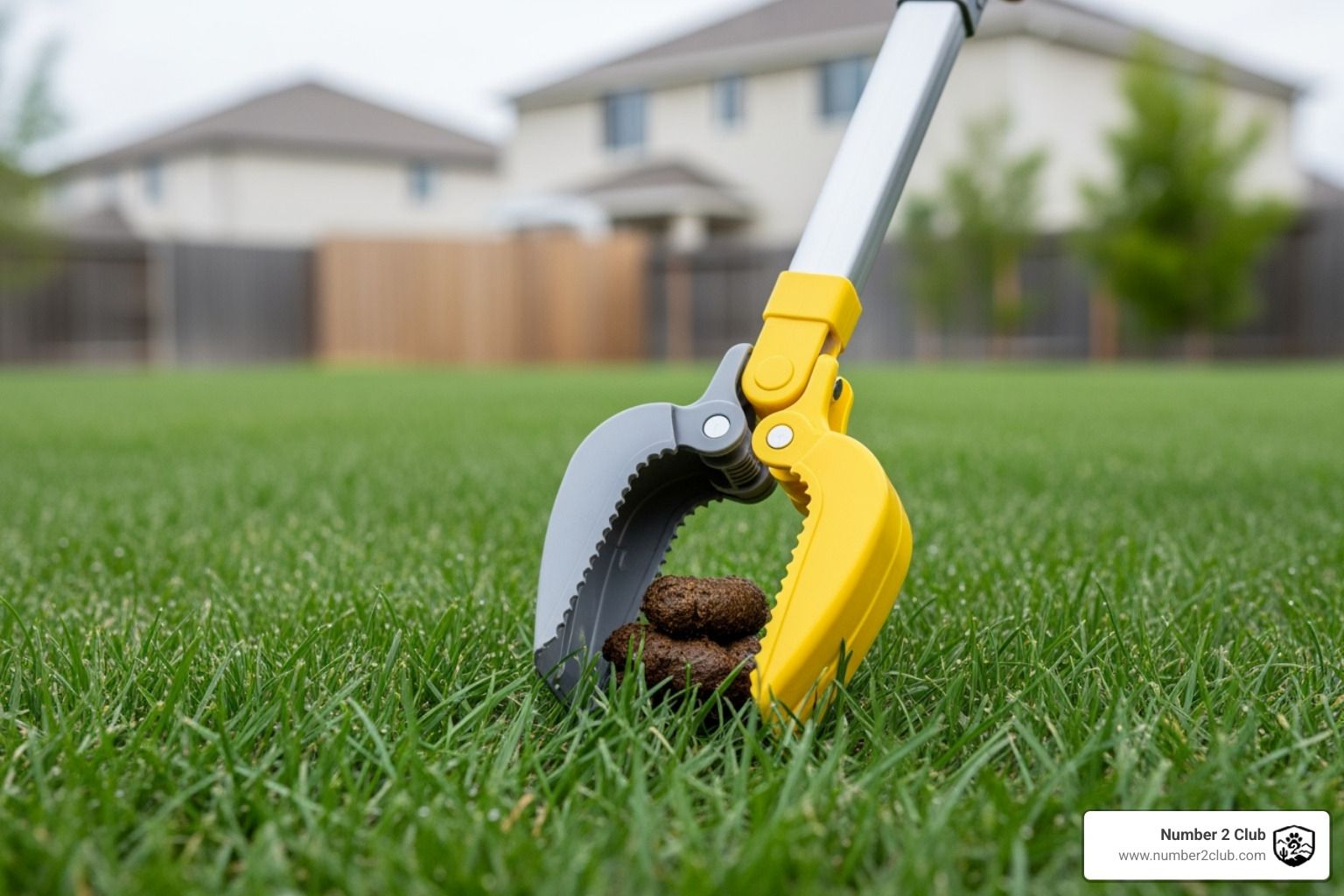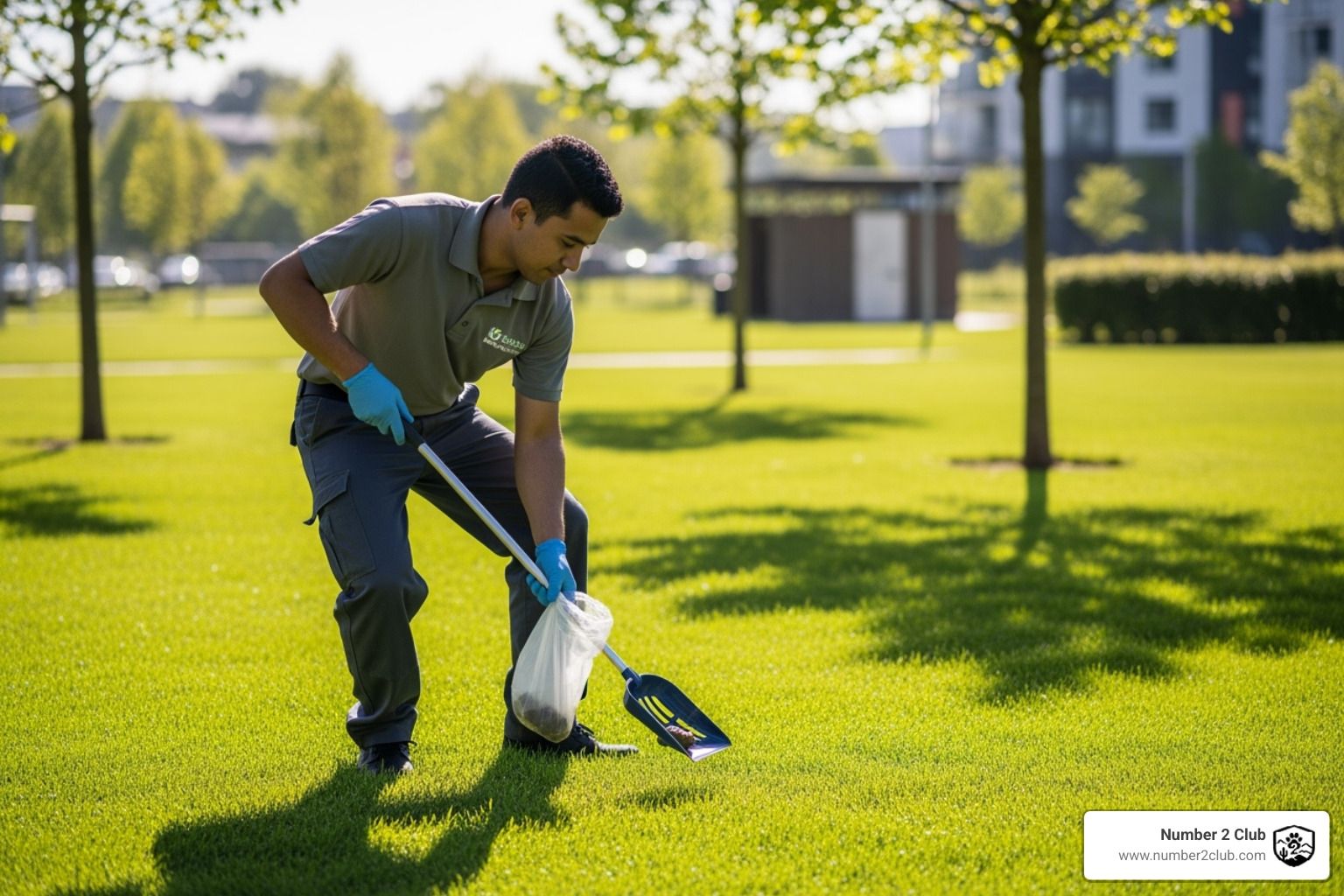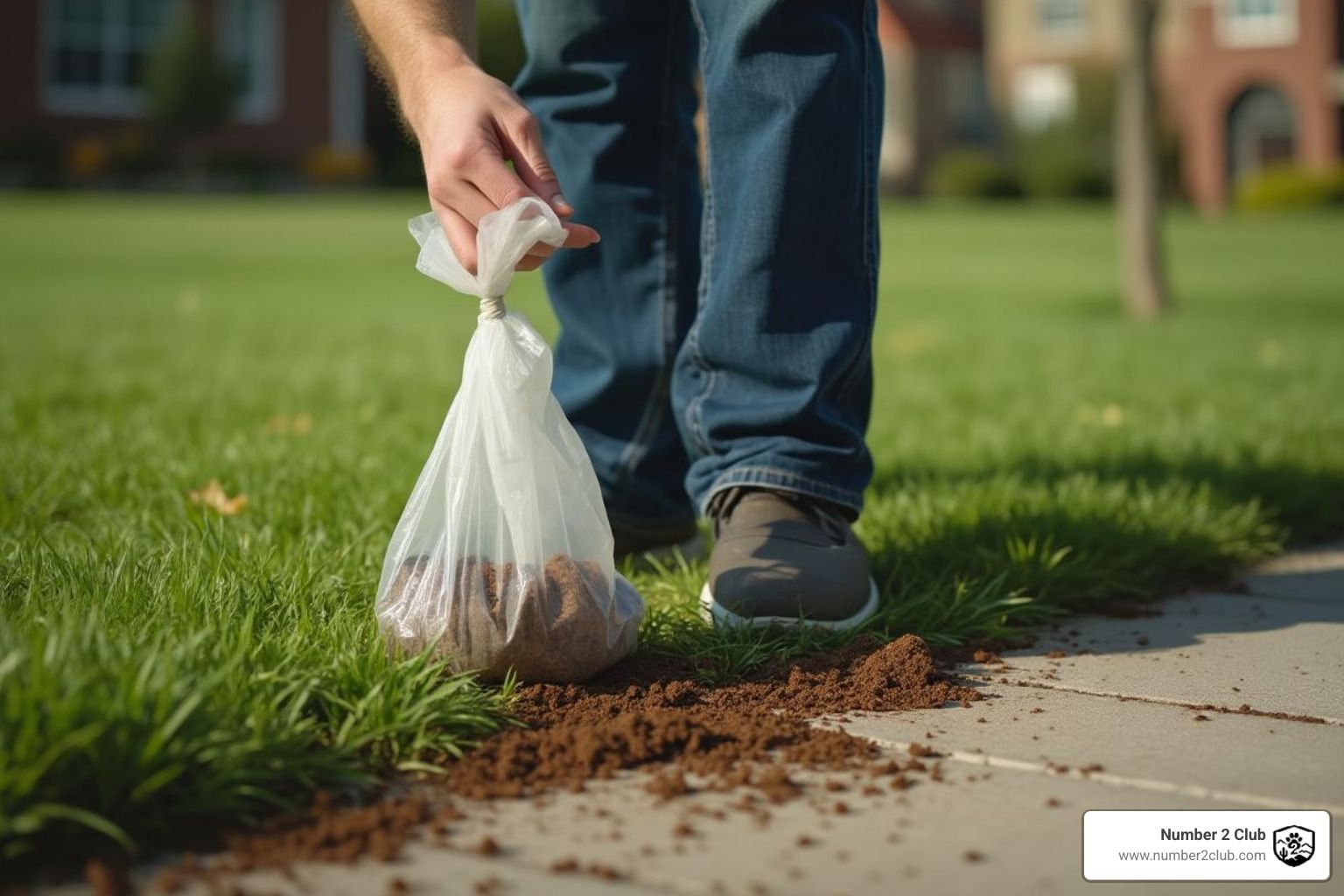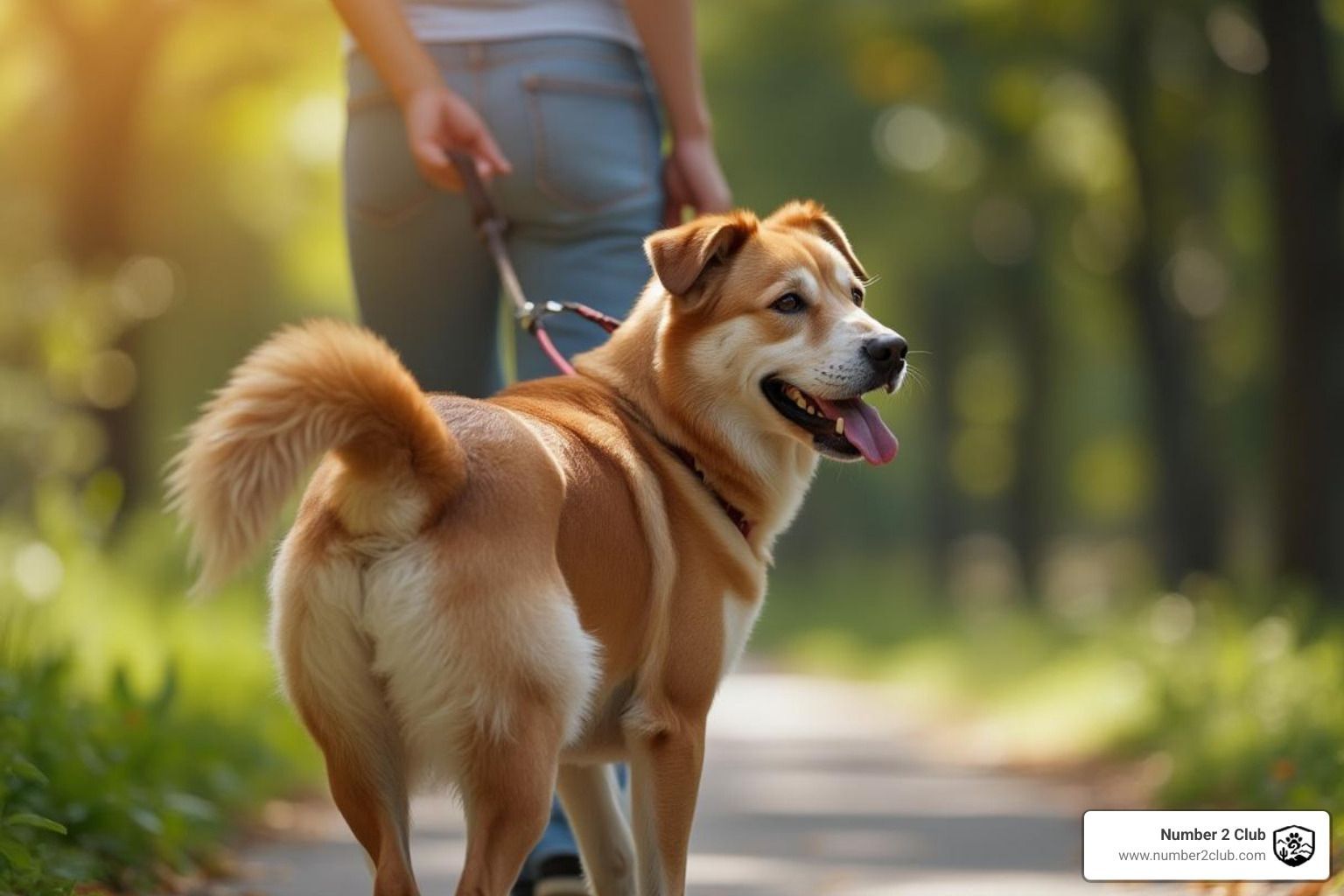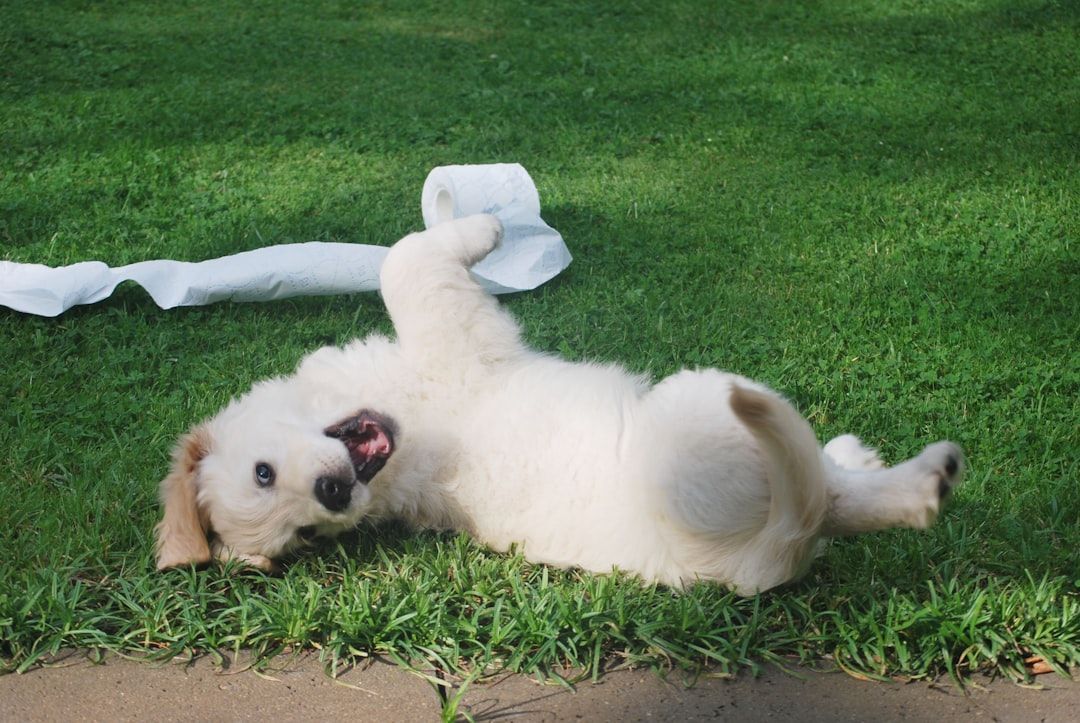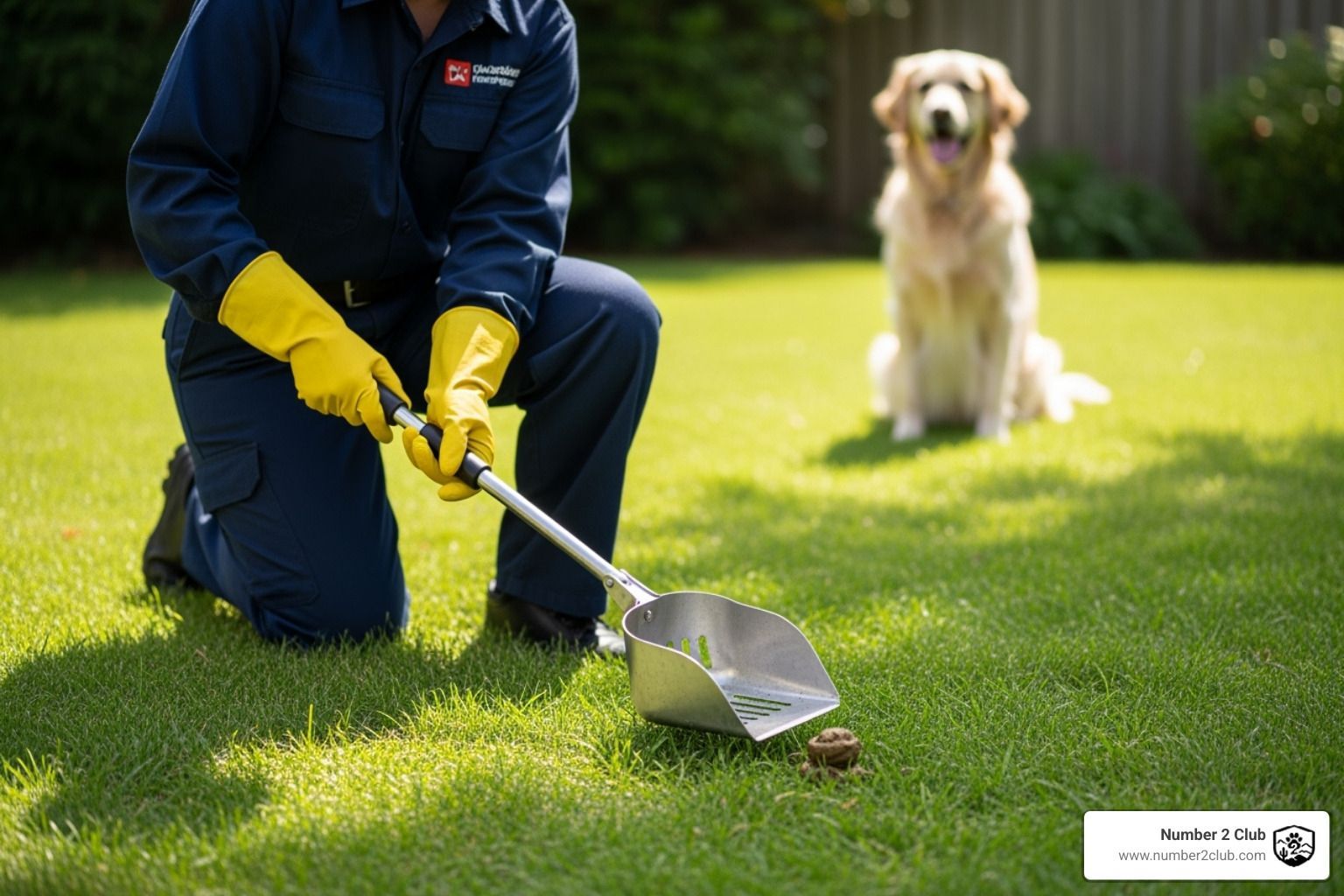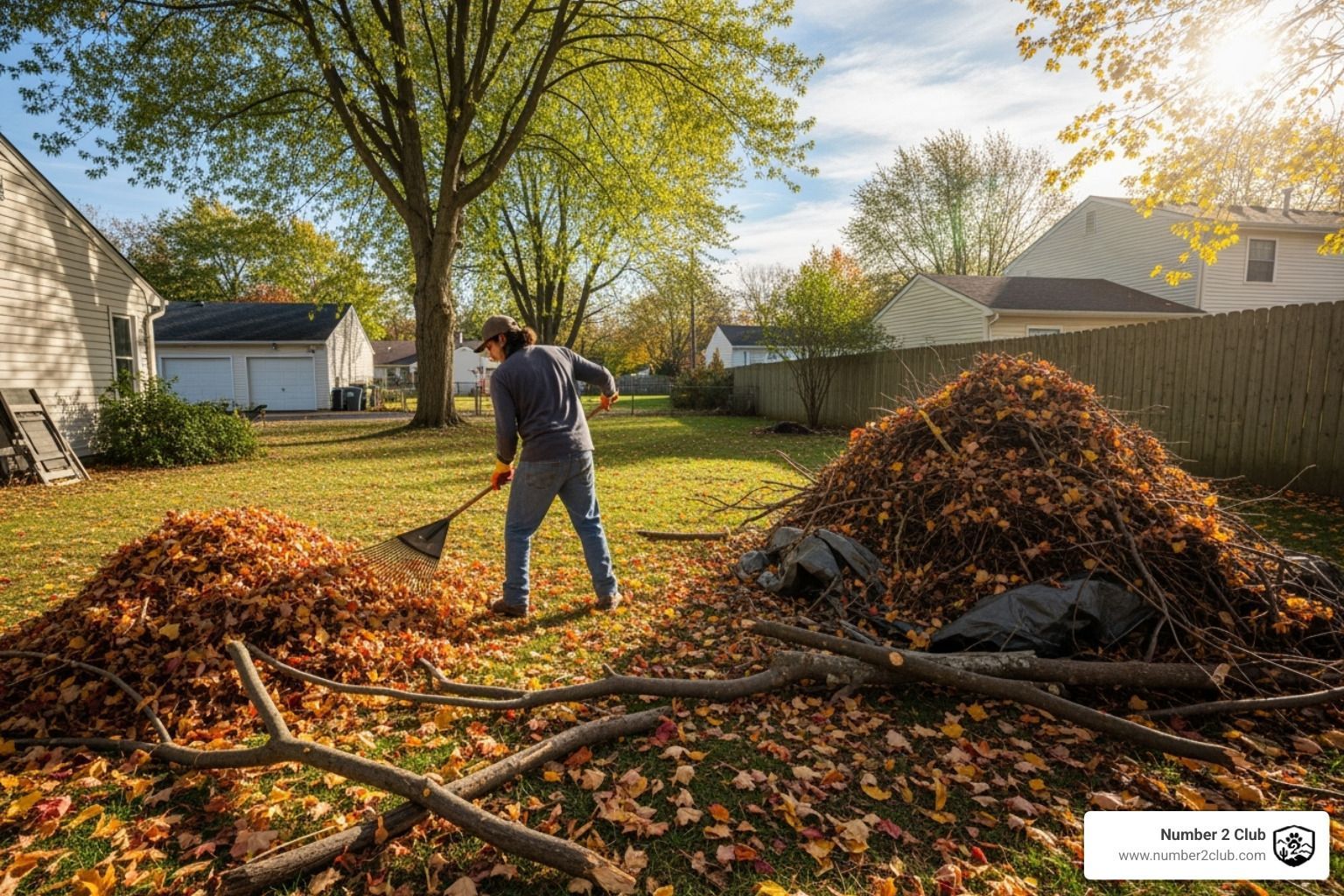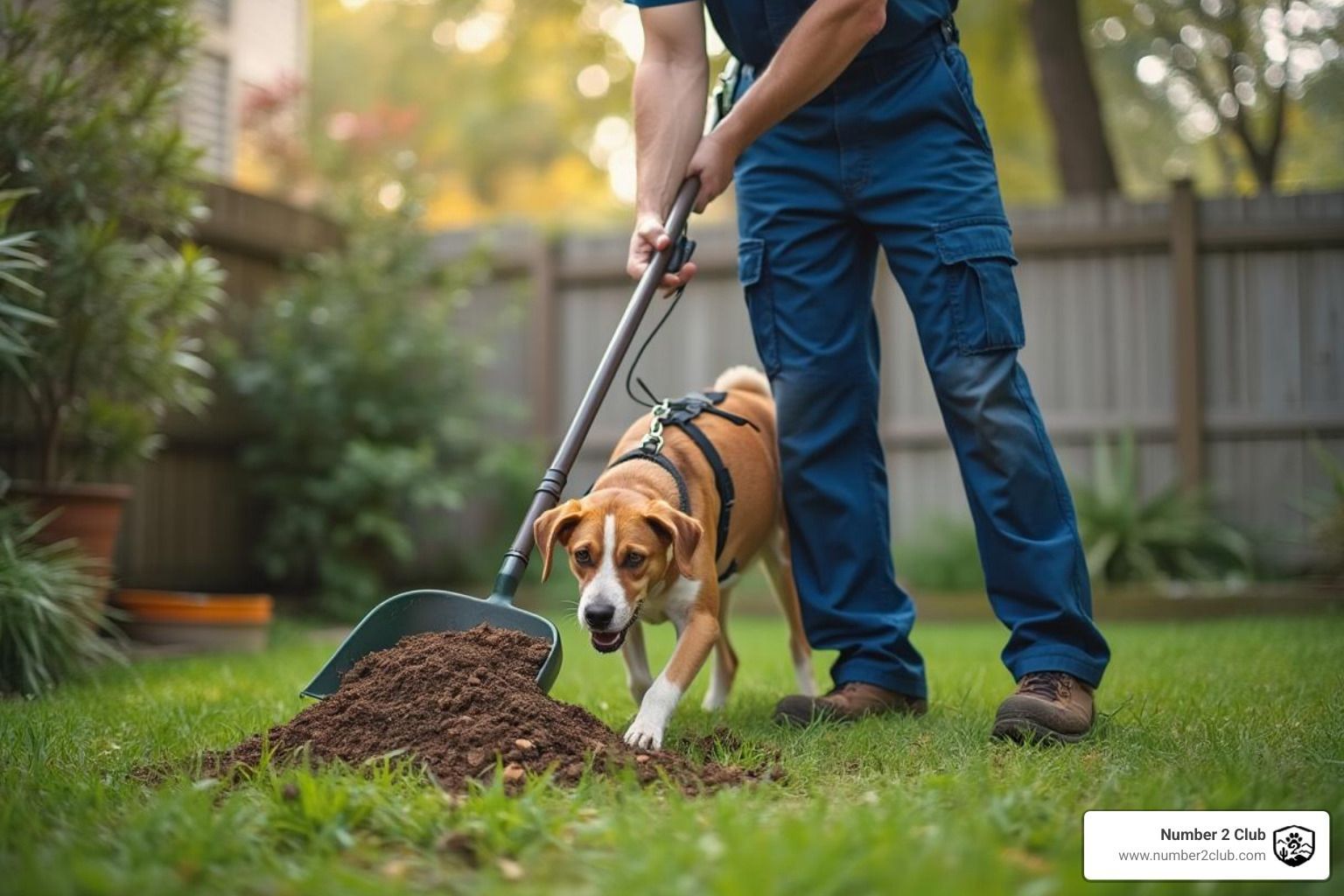Scoop Dreams: The Best Pooper Scoopers for Dogs
The Poop Scoop: Why Every Dog Owner Needs a Reliable Pooper Scooper

If you're looking for the best dog pooper scooper for your needs, here's a quick answer:
Top Dog Pooper Scooper Options:
- Best Overall: Arm & Hammer Swivel Bin & Rake (4.5/5 stars, $17-25)
- Most Durable: Activedogs Heavy-Duty Metal Jaw (4.8/5 stars, $67)
- Best for Mobility Issues: GoGo Stik Clean Set (4.5/5 stars, $35)
- Most Portable: PET LIFE Mini Squeeze-N-Scoop (collapsible for travel)
- Most Eco-Friendly: Scooper Doggie (100% biodegradable paperboard)
Let's face it—picking up after your dog isn't the most glamorous part of pet ownership, but it's one of the most necessary. A quality dog pooper scooper can transform this dreaded chore into a quick, hygienic task that protects your lawn, local environment, and family health. With options ranging from long-handled rake and tray sets to compact jaw-style grabbers, today's market offers solutions for every dog owner's specific needs.
The right scooper does more than just clean your yard—it prevents harmful bacteria from washing into waterways, eliminates odors that attract pests, and helps maintain neighborhood harmony. One gram of dog waste can contain 23 million fecal coliform bacteria, making proper cleanup essential for public health.
I'm Joseph Lopez from Number 2 Club, with over a decade of experience in pet waste management and dog pooper scooper selection for residential and commercial properties across Arizona's West Valley. Having tested dozens of models across various surfaces and weather conditions, I've developed practical insights into which tools perform best in real-world scenarios.

Top 10 Dog Pooper Scooper Picks for Every Scenario
Let's be honest – picking up after your furry friend isn't exactly the highlight of dog ownership. But with the right tools, it doesn't have to be a dreaded chore! After testing countless models throughout Litchfield Park, Goodyear, Verrado, and Buckeye properties, I've put together this guide to help you find your perfect poop-scooping companion.

Claw-Style Dog Pooper Scooper
The claw-style dog pooper scooper has become a favorite among pet parents with its spring-loaded jaws that snap shut with a simple squeeze, making cleanup almost satisfying.
What makes this style shine is its one-handed operation, leaving your other hand free to hold a leash or coffee. The spring-loaded mechanism grips waste firmly without requiring you to bend over. I've found these particularly effective on Bermuda grass lawns common in Litchfield Park and Goodyear, where the serrated teeth can steer through grass blades without damaging your lawn.
Rake & Tray Dog Pooper Scooper Set
This classic combo consists of a rake for gathering waste and a pan for collection – simple but incredibly effective.
My clients with larger properties in Verrado especially appreciate these sets for their weekly cleanup routine. With adjustable rake widths to handle waste of all sizes and large collection bins that minimize trips to the trash, they're a time-saver for multi-dog households. The long handles keep you upright and comfortable, even during extended cleanup sessions.
Swivel-Bin Dog Pooper Scooper
For those who are particularly odor-sensitive, the swivel-bin dog pooper scooper offers a sealed solution that contains both waste and smells.
The genius of these models lies in their odor-locking lids that keep everything contained during use. The Hygena Scoop model has been a hit with my Buckeye clients whose homes sit close to neighbors. With snap-in bag designs for hygienic disposal, they're perfect for thorough yard cleanup sessions.
Heavy-Duty Metal Jaw Scooper
When you've got big dogs or a multi-dog household, durability becomes essential. That's where heavy-duty metal jaw scoopers truly shine.
These stainless-steel workhorses resist corrosion and stand up to years of use – even in Arizona's punishing summer heat. The strong jaws handle larger waste volumes with ease, while serrated edges help lift waste from challenging surfaces. With a stellar 4.8/5 star rating, these models prove that sometimes it's worth investing in quality that lasts.
Portable Pocket Scooper
For walks through Verrado's community paths or visits to Buckeye's parks, a portable pocket scooper is invaluable.
These compact tools fit easily in a pocket or attach to a leash, ready whenever duty calls. The PET LIFE Mini Squeeze-N-Scoop has been my go-to recommendation for travelers thanks to its lightweight collapsible design. With convenient belt clips, these portable options ensure you're always prepared for cleanup away from home.
Fold-and-Bag Cardboard Scooper
For environmentally conscious clients, the fold-and-bag cardboard scooper offers a guilt-free cleanup solution.
Made from 100% biodegradable recycled paperboard, options like the Scooper Doggie combine scoop and disposal in one convenient package. The single-use design eliminates cleaning entirely – simply use, fold, and toss.
Telescoping Spade Scooper
The flat spade design slides effortlessly under waste on pavement – a feature particularly appreciated by clients in newer Goodyear and Verrado developments where concrete patios and paved areas are common. With adjustable handle lengths and comfortable grip handles, these models provide significant back relief through their extended reach.
Snow & Ice Scooper Attachment
These specialized attachments feature chipper edges that break through frozen waste and maintain flexibility in cold temperatures. The YardPup's "Little Paw" multi-tool has proven particularly useful as both a waste scooper and a chipper for occasional ice or hardened soil.
Hands-Free Bag Frame Scooper
These clever frames allow you to reuse grocery or kitchen bags, creating a hygienic barrier between you and pet waste. The ScooperGenie has been described as "an amazing convenience" by clients with limited mobility, allowing one-handed operation even for those using wheelchairs or scooters.
Multi-Tool Yard Scooper Kit
These comprehensive kits often include scraper attachments for stubborn waste, holders for odor-neutralizing spray, and garden-safe designs that won't damage plants or lawns. My clients in Litchfield Park and Buckeye who maintain meticulous yards particularly appreciate these all-in-one solutions.
How to Choose the Right Dog Pooper Scooper
Finding your perfect dog pooper scooper shouldn't feel like a science project. Think of it as matching a tool to your specific needs – kind of like finding the right pair of shoes. Your yard, your dog, and even your own physical comfort all play important roles in making the right choice.
Match Scooper to Your Surface
The ground you're cleaning makes a huge difference in which scooper will work best.
For grassy yards, look for jaw or claw-style scoopers with teeth that can grab waste without tearing up your lawn. The teeth help separate waste from grass blades, making cleanup much more effective. I've found these work wonderfully in the lush Bermuda grass lawns common throughout Litchfield Park.
If you're dealing with gravel areas (which many Arizona homeowners are), you'll want scoopers with wider-set teeth that won't constantly catch small stones. This is especially important in Verrado and Buckeye communities where decorative rock landscaping is popular.
For pavement and concrete patios, flat-edged shovels or spades that can slide smoothly underneath waste are your best bet. Some even come with rubber edges to protect decorative concrete from scratches.
And yes, even in Arizona, we occasionally deal with frozen ground! For those chilly winter mornings, specialized scoopers with chipper edges can break through frozen waste without becoming brittle in the cold.
Fit for Your Dog's Size & Diet
Your furry friend's size and output quality should guide your choice too.
Small breed owners can opt for compact jaw scoopers with precise closing mechanisms. These lightweight tools make quick work of smaller deposits without feeling unwieldy. For those blessed with large breed companions, you'll need something with heavy-duty construction and a larger collection bin.
Here's a practical tip we share with our Litchfield Park clients: if your dog consistently produces soft stools, look for scoopers with solid collection surfaces rather than rake designs. Adding a bit of psyllium husk to your dog's diet can also help firm things up for easier pickup.
Handle Length & Back Health
Your back will thank you for considering this factor! Proper ergonomics turn this chore from a literal pain into a quick, comfortable task.
Telescoping handles that adjust to your height (typically ranging from 24-38 inches) are worth their weight in gold, especially if multiple family members share the cleanup duty. Look for lightweight materials (under 5 pounds) to reduce arm strain during longer cleanup sessions.
I've seen how important this is for our senior clients in Goodyear retirement communities. Many have found that models with extended handles and one-handed operation have allowed them to maintain their yards independently without risking back strain.
Materials & Maintenance
The longevity and hygiene of your dog pooper scooper largely depend on what it's made of and how easily you can clean it.
Non-stick plastic options are lightweight, affordable, and often include antimicrobial protection – perfect for Arizona's hot climate. Many are dishwasher-safe for thorough cleaning, though they typically don't last as long as metal alternatives.
Stainless steel scoopers offer superior durability and longevity. They resist rust, rinse clean easily with a garden hose, and while heavier, are typically worth the investment if you plan to use them for years.
Whatever material you choose, maintenance is simple but important: rinse after each use to prevent odor buildup, use a disinfectant spray weekly to eliminate bacteria, and allow to dry completely before storage to prevent mold.
Looking for more advice? Our FAQ page covers additional questions about choosing and maintaining the right equipment for your needs.
Waste Disposal & Eco-Friendly Practices
Picking up after your pup is just the first step—what you do with that waste matters just as much. As we've seen while serving clients throughout Litchfield Park, Goodyear, Verrado, and Buckeye, more pet parents are looking for environmentally responsible ways to handle this inevitable aspect of dog ownership.

Here's something that might surprise you: a single gram of dog waste can contain a whopping 23 million fecal coliform bacteria. The waste from just 100 dogs over a weekend can contaminate enough water to close 20 miles of watershed. This is why proper disposal isn't just about keeping your yard clean—it's about protecting our shared environment.
Most of us default to the standard methods: double-bagging waste before tossing it in the household trash, using designated pet waste stations in public areas, and knowing that never flush dog waste down the toilet (even if bags claim to be flushable). These approaches work, but they're not the only options.
Green Alternatives to Trash Cans
If you're looking to reduce your environmental pawprint, several earth-friendly alternatives exist beyond the traditional trash can route.
Dedicated pet waste composters offer an interesting solution for environmentally conscious dog owners. Unlike your regular garden compost pile (which should never contain pet waste), these specialized in-ground digesters are designed specifically to break down waste safely. They work best when placed away from water sources and food gardens, and many of our Verrado clients with larger properties have had great success with them.
For the truly innovative, biogas options are emerging as an exciting frontier. In some forward-thinking communities, dog waste is actually being converted into usable energy. While large-scale implementation is still developing, small-scale biogas digesters are becoming more accessible for home use.
We've also seen growing interest in commercial composting partnerships like ENVIROWAGG, which collect and process pet waste through high-temperature industrial composting facilities. These services aren't available everywhere yet, but they represent a promising trend toward more sustainable solutions.
For those interested in the science behind why proper disposal matters, research on dog waste pathogens provides insights into the potential environmental impacts. And if you manage a commercial property with multiple dogs, check out our commercial disposal services for custom solutions.
Best Practices in Public Spaces
When you're out and about with your four-legged friend, waste management becomes a community responsibility that reflects on all dog owners.
Always carry extra waste bags on walks—those leash-attached dispensers are worth their weight in gold when you find you've run out mid-walk. Most of Arizona's newer communities have installed park stations with both bags and disposal bins, but they're not always available when you need them.
One habit we strongly discourage is leaving bagged waste on trails with the intention to "pick up later." Once bagged, take it with you—your future self might forget, but the environment won't.
For frequent park visitors, especially those with multiple dogs, portable scoopers can be game-changers. They allow for more hygienic cleanup and often include storage compartments for bags and sanitizer.
The choices we make about dog waste disposal might seem small in the moment, but collectively, they make a massive difference to our watershed health, neighborhood cleanliness, and community relationships.
Earning with Poop: Turning Scooping into a Side Hustle
Who knew that dog waste could be a pathway to profit? For the entrepreneurial mind, a dog pooper scooper service can transform from a weekend chore into a surprisingly lucrative side business. Once established, the average professional pet waste technician earns between $40-60 per hour – not bad for a business with relatively low startup costs and flexible hours.
Before you grab your scooper and hit the neighborhood, you'll need a few essentials: quality equipment, reliable transportation, a proper waste disposal plan that complies with local regulations, basic liability insurance, and a simple scheduling and billing system.
Setting Your Dog Pooper Scooper Rates
Finding the sweet spot for pricing can make or break your poop-scooping venture. Based on our years serving Litchfield Park, Goodyear, Verrado, and Buckeye areas, we've developed pricing strategies that keep both clients happy and businesses profitable.
Most successful scoopers use a weekly service model, charging between $12-25 per visit for households with a single dog. For homes with multiple furry friends, adding $3-5 per additional dog is standard practice. One-time cleanups typically run about $55 for the first hour, with $15 increments for each additional 15 minutes of work.
Spring presents a golden opportunity, especially after winter when yards may need what we affectionately call a "poop purge." These seasonal deep cleans command premium rates between $60-100, depending on yard size and accumulation level.
In our experience, most residential clients with 1-2 dogs require just 15-30 minutes per visit. This efficiency means a well-organized scooper can complete 10-12 yards per day, creating a healthy income stream that fits around other commitments.
When researching your local market, don't just focus on undercutting the competition. Survey what others charge as a baseline, but reliability and thoroughness will win more loyal customers than rock-bottom prices.
Marketing & Customer Retention
Building a client base doesn't have to be complicated, but it does require consistent effort and a touch of creativity. We've found neighborhood Facebook groups and community pages to be goldmines for new customers – these platforms let you target precisely the local areas you serve.
Yard signs placed after service (always with client permission) create a visual reminder that triggers conversations among neighbors. Partnerships with local veterinarians and pet stores can also provide steady referrals, as these businesses already serve the exact customer base you're targeting.
Don't overlook the power of a well-optimized Google Business Profile. When local pet owners search " dog pooper scooper service near me," you want your business appearing at the top of those results.
The real secret to building a sustainable scooping business lies in customer retention. Consistency is key – showing up reliably on scheduled days builds trust quickly. Clear communication about service dates, especially around holidays or weather disruptions, shows professionalism that clients appreciate.
Our most powerful growth driver across West Valley communities has consistently been client referrals. We've found that a satisfied customer in Verrado typically refers 2-3 neighbors within just six months of service. To encourage this organic growth, consider offering referral discounts for existing clients and seasonal promotions that reward long-term commitments.
Frequently Asked Questions about Dog Pooper Scoopers
Let's tackle those burning questions I hear from dog owners all across Litchfield Park, Goodyear, Verrado, and Buckeye. After years in this business, I've heard it all – and I'm happy to share what I've learned!
Do I need to clean my dog pooper scooper after every use?
Yes, cleaning your dog pooper scooper after each use isn't just about being tidy – it's actually really important for your health and the longevity of your tool.
Think about it – that scooper just picked up waste full of bacteria. Giving it a quick clean prevents those germs from multiplying, eliminates unpleasant odors (which we know can get intense in Arizona heat!), and keeps the moving parts working smoothly.
The good news? Cleaning doesn't need to be complicated. A quick spray with your garden hose, followed by a pet-safe disinfectant wipe or spray, does the trick. Just make sure it dries completely before you put it away. If you have a plastic scooper that's dishwasher-safe, you can also run it through occasionally for a deeper clean.
One tip I share with my West Valley clients: store your clean scooper in the shade! Our Arizona sun is brutal on plastic components and can cause them to degrade much faster than you'd expect.
Can dog waste be composted safely at home?
This is one of those "yes, but..." situations. Dog waste can be composted, but you need to follow some specific rules to keep things safe.
First and most important – never mix dog waste compost with your regular garden compost, especially if you're growing food. The pathogens in dog waste require special handling.
For safe composting, you'll need a dedicated pet waste composter kept far away (at least 100 feet) from water sources and vegetable gardens. You'll want to regularly add carbon materials like sawdust or shredded paper to help the breakdown process. The compost pile needs to reach at least 140°F to kill harmful pathogens – and even then, the resulting compost should only be used for ornamental plants, never edibles.
Many of my clients in newer Verrado and Buckeye communities check if their local waste management offers industrial composting for pet waste instead. The rules vary by community, so it's worth a quick call to check before setting up your system.
How much can a part-time scooper realistically earn?
When people hear I run a pet waste removal business, they're often surprised to learn how profitable this "dirty job" can be. If you're considering this as a side hustle, here's the scoop on potential earnings.
In the West Valley market, most yards take between 15-30 minutes to service completely. At standard rates of $15-25 per weekly visit, an efficient route can generate $40-60 per hour of actual work time. Many of our part-timers with about 20 regular clients earn $300-500 weekly while working just 10-12 hours.
One person I mentored began with just 13 clients and was earning $1,500 monthly after only three months. Another built up to 30 clients and grossed $2,400 monthly while still keeping it to part-time hours.
The secret to maximizing your earnings? Route density. If you can cluster your clients in specific neighborhoods like we do in Litchfield Park and Goodyear, you'll dramatically cut your travel time between stops.
Conclusion
Choosing the right dog pooper scooper might seem like a small detail in the grand scheme of pet ownership, but it's one of those decisions that can genuinely improve your daily life. Whether you're tending to a carefully landscaped yard in Litchfield Park, managing multiple furry friends in Goodyear, navigating desert terrain in Verrado, or settling into a new home in Buckeye, having the proper tools transforms a dreaded chore into a quick, painless task.

Here at Number 2 Club, we've witnessed how regular waste management creates a ripple effect of benefits. Clean yards lead to healthier pets, which contribute to happier families and stronger communities. The perfect dog pooper scooper isn't just about functionality—it's about finding something that fits so seamlessly into your routine that you hardly notice the chore anymore.
Beyond personal comfort, consistent waste removal serves a greater purpose. It protects our local waterways from harmful bacteria, prevents parasite spread among neighborhood pets, and maintains those good relations with neighbors that we all value. In Arizona's delicate desert ecosystem, proper waste management is particularly important for environmental health.
Whether you decide to tackle the task yourself with one of our recommended scoopers or prefer to join the many West Valley residents who've decided to leave it to our professional team, regular cleanup remains an essential part of responsible pet ownership. Your four-legged friend might not thank you verbally, but a clean, safe environment speaks volumes to their wellbeing.
For our neighbors in Litchfield Park, Goodyear, Verrado, and Buckeye who'd rather spend their precious free time doing, well, anything else, Number 2 Club offers residential services custom to your specific property needs. From weekly backyard cleanups to commercial property maintenance , we've dedicated ourselves to keeping Arizona's communities clean, one yard at a time.


